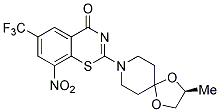The balance of PU.1 and GATA1/2 proteins supports the earlier literature, where GATA proteins are down regulated during myeloid lineage specification and their up regulation favors the cell fate towards erythroid lineage. PU.1 is considered as the master regulator of different hematopoietic lineages and it regulates its target genes at multiple  levels. During macrophage differentiation PU.1 associates with differentiation-associated epigenetic changes and binds to its target genes. Binding of PU.1 was found to depend on its concentration, chromatin accessibility, PU.1 motif binding affinity and co-operative interaction with neighboring transcription factors. This study also reported that PU.1 binding is independent of the genome wide DNA methylation where as our data identified a locus specific demethylation of KLF4 promoter which is required for PU.1 binding. Additionally, ChIP sequencing analysis during terminal differentiation of monocyte to osteoclasts, it was observed that PU.1 target genes undergo TET2 coupled demethylation and DNMT3b mediated methylation. This study also showed that PU.1 interacts with both DNMT3b and TET2 and its knock down in primary monocytes impairs acquisition of DNA methylation marks and expression changes; reduced association of TET2 and DNMT3b at PU.1 target genes. We identified a similar role of PU.1 in associating with locus specific demethylation of KLF4 promoter and further attempted to investigate the proteins involved in demethylation. Existing literature reported active DNA demethylation in several cell types including R428 neurons, T-cells and human embryonic kidney cells. GADD45a promoted active DNA demethylation in zebra fish zygote, X. laevis oocytes and HEK293T cells. However, several studies failed to substantiate the role of GADD45a in demethylation of DNA in mice. In another study, profiling of DNA methylation throughout the genome in wild-type and AICDA-deficient mouse Primordial Germ Cells revealed that AICDA-deficient PGCs were up to three times more methylated than wild-type ones. Similarly, our study supported the role of AICDA in sequence specific demethylation of KLF4 promoter in differentiating myeloid progenitors. We found for the first time that AICDA was expressed in myeloid progenitor cells and found to physically associate with the KLF4 promoter. shRNA mediated suppression of AICDA resulted in blockade of maturation of myeloid progenitor cells in terms of morphological. cellular changes and F4/80 expression. Maturation of myeloid progenitors is mediated by transcriptional up regulation of KLF4 that resulted from active demethylation of its promoter by AICDA. To test if GADD45a was necessary for the sequence specific demethylation of KLF4 promoter, we compared the methylation of KLF4 promoter M1CpG region in differentiating Vorinostat macrophages from wild type and gadd45a knock out BMDM by methylation specific PCR. Interestingly, the gadd45a deficient macrophages did not show any defect in demethylation of the KLF4 promoter sequence, where as knock down of AICDA by shRNA drastically impaired the demethylation of KLF4 promoter and the morphological characters. In the present study, we observed a close correlation between demethylation of proximal CpG dinucleotides in KLF4 gene promoter, PU.1 binding, regulation of KLF4 expression and monocyte/macrophage differentiation.
levels. During macrophage differentiation PU.1 associates with differentiation-associated epigenetic changes and binds to its target genes. Binding of PU.1 was found to depend on its concentration, chromatin accessibility, PU.1 motif binding affinity and co-operative interaction with neighboring transcription factors. This study also reported that PU.1 binding is independent of the genome wide DNA methylation where as our data identified a locus specific demethylation of KLF4 promoter which is required for PU.1 binding. Additionally, ChIP sequencing analysis during terminal differentiation of monocyte to osteoclasts, it was observed that PU.1 target genes undergo TET2 coupled demethylation and DNMT3b mediated methylation. This study also showed that PU.1 interacts with both DNMT3b and TET2 and its knock down in primary monocytes impairs acquisition of DNA methylation marks and expression changes; reduced association of TET2 and DNMT3b at PU.1 target genes. We identified a similar role of PU.1 in associating with locus specific demethylation of KLF4 promoter and further attempted to investigate the proteins involved in demethylation. Existing literature reported active DNA demethylation in several cell types including R428 neurons, T-cells and human embryonic kidney cells. GADD45a promoted active DNA demethylation in zebra fish zygote, X. laevis oocytes and HEK293T cells. However, several studies failed to substantiate the role of GADD45a in demethylation of DNA in mice. In another study, profiling of DNA methylation throughout the genome in wild-type and AICDA-deficient mouse Primordial Germ Cells revealed that AICDA-deficient PGCs were up to three times more methylated than wild-type ones. Similarly, our study supported the role of AICDA in sequence specific demethylation of KLF4 promoter in differentiating myeloid progenitors. We found for the first time that AICDA was expressed in myeloid progenitor cells and found to physically associate with the KLF4 promoter. shRNA mediated suppression of AICDA resulted in blockade of maturation of myeloid progenitor cells in terms of morphological. cellular changes and F4/80 expression. Maturation of myeloid progenitors is mediated by transcriptional up regulation of KLF4 that resulted from active demethylation of its promoter by AICDA. To test if GADD45a was necessary for the sequence specific demethylation of KLF4 promoter, we compared the methylation of KLF4 promoter M1CpG region in differentiating Vorinostat macrophages from wild type and gadd45a knock out BMDM by methylation specific PCR. Interestingly, the gadd45a deficient macrophages did not show any defect in demethylation of the KLF4 promoter sequence, where as knock down of AICDA by shRNA drastically impaired the demethylation of KLF4 promoter and the morphological characters. In the present study, we observed a close correlation between demethylation of proximal CpG dinucleotides in KLF4 gene promoter, PU.1 binding, regulation of KLF4 expression and monocyte/macrophage differentiation.